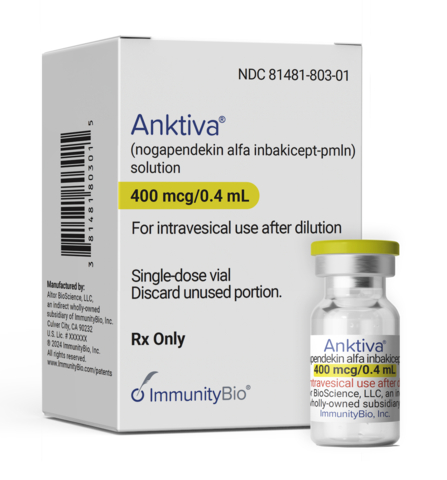Emergent BioSolutions, a multinational specialty biopharmaceutical company headquartered in Gaithersburg, Maryland, has achieved a significant milestone with the approval of its Cyfendus (Anthrax Vaccine Adsorbed, Adjuvanted) vaccine by the US Food and Drug Administration (FDA). The FDA has granted approval for the use of Cyfendus in post-exposure prophylaxis against disease following suspected or confirmed exposure to Bacillus anthracis in individuals aged 18 to 65 years. Notably, this approval is contingent upon administering the vaccine alongside recommended antibacterial drugs.
Since 2019, Emergent has been supplying the Cyfendus vaccine to the US Department of Health and Human Services under the pre-Emergency Use Authorization status. Moving forward, the company will continue to collaborate with the US government to facilitate a seamless transition to post-approval procurement of the vaccine.
“The approval of Cyfendus vaccine is symbolic of Emergent’s longstanding partnership with the US government and our shared commitment to helping protect public health,” said Dr. Kelly Warfield, Emergent’s senior vice president, science and development, in the company’s press release.
What Is Anthrax?
Anthrax is a rare, yet severe disease caused by the bacterium B. anthracis, primarily affecting livestock and wild game. While there is no evidence of person-to-person transmission, anthrax skin lesions may be contagious through direct contact or contaminated objects. The bacteria usually enter the body through wounds, but infection can also occur through contaminated meat or inhalation of spores. Symptoms vary based on the mode of infection and may include skin sores, vomiting and shock. Prompt antibiotic treatment can effectively cure most cases, but inhaled anthrax is harder to treat and potentially fatal. Though rare in developed regions, anthrax remains a concern due to bioterrorism threats in the US.
How Does Cyfendus Work?
Cyfendus is derived from cell-free filtrates of microaerophilic cultures of an avirulent, nonencapsulated strain of B. anthracis. The vaccine is available in a suspension form, with each dose consisting of 0.5 mL for intramuscular injection. The recommended administration involves two doses, each of 0.5 mL, to be given intramuscularly two weeks apart following the exposure, in combination with appropriate antibacterial therapy.
Cyfendus functions by stimulating the production of antibodies targeted against the protective antigen protein. These antibodies play a crucial role in providing protection by effectively neutralizing the cytotoxic lethal toxin and edema toxin of B. anthracis.
ON-DEMAND XTALKS WEBINAR: Accelerating TB Vaccine Development: Insights from Microsampling, Biomarkers and Data Analysis
Register for this free webinar to explore new and future technologies that have the potential to advance TB vaccine development. From novel vaccine platforms to innovative diagnostic tools, attendees will gain insights into emerging technologies that hold promise for the prevention, diagnosis and treatment of TB, with a specific focus on pediatric populations.
Efficacy of Cyfendus
The FDA approval of the Cyfendus anthrax vaccine is grounded in a series of studies supported by the US government and carried out by Emergent. These studies encompass:
- A pivotal Phase III clinical study that examined the vaccine’s lot consistency, immunogenicity and safety in healthy adults through a two-dose schedule administered intramuscularly.
- A Phase II study that assessed the non-interference between antibacterial drugs approved for post-exposure prophylaxis of anthrax disease and the vaccine.
- Non-clinical studies that gauged the vaccine’s protective efficacy against lethal challenge with anthrax spores and helped determine the levels of neutralizing antibodies associated with protection against the disease.
In the multicenter Phase III clinical study, participants were randomly assigned to different groups in an active-controlled, double-blind, parallel-group design. Specifically, 3,151 participants received at least one dose of Cyfendus, and out of those, 2,898 participants completed the full two-dose regimen of Cyfendus. Additionally, 533 participants received at least one dose of the comparator-licensed anthrax vaccine, BioThrax (Anthrax Vaccine Adsorbed).
Overall, 66.3 percent of the participants who received Cyfendus achieved a threshold toxin neutralizing antibody (TNA) neutralization factor 50 (NF50) value of ≥0.56 on Day 64 in the study. Additionally, at Day 64, 86.6 percent of the Cyfendus group had a threshold TNA NF50 of ≥0.29, compared to 61.4 percent in the BioThrax group. The non-inferiority of Cyfendus to BioThrax was statistically determined in the clinical study results.
Moreover, the clinical trials demonstrated that Cyfendus exhibited a favorable tolerability profile. The most commonly reported adverse reactions were tenderness, pain, warmth, itching, swelling, redness, bruising, limitations in arm motion, muscle aches, tiredness, headache and fever. Notably, there were no significant differences in the frequency of solicited local or systemic adverse reactions after the first or second dose of Cyfendus, except for a few specific reactions.
“The approval of the Cyfendus vaccine demonstrates what effective public-private partnerships can achieve for national security. Emergent will continue to work closely with the US government to transition this product to post-approval procurement while ensuring an uninterrupted supply of this important vaccine,” said Paul Williams, Emergent’s senior vice president, products business, in the news release.
Other Anthrax Vaccines and Treatments
In addition to Cyfendus, several other vaccines and treatments have received FDA approval to combat Anthrax. One such vaccine is BioThrax which was also developed by Emergent BioSolutions and gained FDA clearance back in 1970. It is specifically indicated for the pre-exposure prophylaxis of anthrax infection in individuals at high risk of exposure.
Moreover, Emergent BioSolutions has developed two other promising treatments for Anthrax. Anthrasil (Anthrax Immune Globulin Intravenous – human) is a polyclonal antibody therapeutic intended for the treatment of adult and pediatric patients with inhalational anthrax resulting from B. anthracis exposure. This treatment is administered in conjunction with appropriate antibacterial drugs to enhance its efficacy.
Another therapeutic developed by Emergent BioSolutions is raxibacumab, which is a monoclonal antibody therapeutic. Like Anthrasil, raxibacumab is designed for the treatment of both adult and pediatric patients with inhalational anthrax caused by B. anthracis. It is also meant to be used alongside appropriate antibacterial drugs to improve patient outcomes.












Join or login to leave a comment
JOIN LOGIN